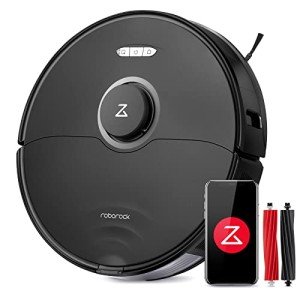The 10 Most Popular Pinterest Profiles To Keep Track Of Robotic Vacuums
The Rise of Robotic Vacuums: A Comprehensive Overview
In today's busy world, technology is consistently progressing to make our lives simpler, and the household cleaning section has actually seen one of the most noteworthy developments: the robotic vacuum. This intelligent gadget not just saves time and energy but likewise guarantees a cleaner home environment with very little manual effort. This article looks into the fascinating evolution of robotic vacuums, how they work, their benefits and drawbacks, market patterns, and future directions.
The Evolution of Robotic Vacuums
Robotic vacuums have actually made excellent strides given that their beginning in the late 1990s. The very first commercially available robotic vacuum was introduced in 1996, followed by various designs, each created with intensifying sophistication and functions. Here is a short timeline of robotic vacuum development:
Year
Event
1996
Release of the very first robotic vacuum (Electrolux's Trilobite)
2002
iRobot Roomba is released, making robotics mainstream
2010
Intro of innovative mapping and navigation features
2017
Combination of AI and smart home compatibility
2022
Introduce of highly advanced designs featuring self-emptying dustbins
How Robotic Vacuums Work
Robotic vacuums utilize a mix of sensing units, algorithms, and synthetic intelligence to navigate areas effectively. Here's how they operate:
Navigation: Most robotic vacuums use a series of sensing units to identify obstacles and navigate around furnishings. Some high-end designs incorporate LIDAR (Light Detection and Ranging) technology to create in-depth maps of the environment.
Cleaning Mechanisms: They are geared up with turning brushes and suction mechanisms to gather debris from numerous surface areas. Depending upon the design, they can transition in between carpets and hard floorings seamlessly.
Smart Features: Many contemporary robotic vacuums are Wi-Fi made it possible for, enabling users to control them from another location via a smartphone app. Features typically consist of scheduling, mapping out cleaning courses, and combination with other smart home gadgets.
Self-Maintenance: High-end units might include self-emptying abilities, where the robot can dock itself to a base that gathers dust and particles without human intervention.
Advantages of Robotic Vacuums
Robotic vacuums have actually gathered immense popularity, and for good reasons. Here are some of the most considerable advantages:
- Time-Saving: Automating the cleaning process allows users to take part in other significant activities.
- Effective Cleaning: Regular cleaning can be quickly achieved by scheduling the robot to clean day-to-day or weekly, keeping dirt and irritants at workable levels.
- Compact Design: Their little size permits them to fit under furniture and in hard-to-reach places.
Despite their benefits, robotic vacuums likewise include restrictions:
- Limited suction power: While they work for maintaining tidy floors, they might not match the deep cleaning of conventional vacuums.
- Battery life: Most designs require to go back to their dock after a specific period of use.
- Preliminary expenses: High-quality robotic vacuums can be pricey, though rates have actually been decreasing with improvements in innovation.
Current Market Trends
The market for robotic vacuums is broadening quickly. According to a recent marketing research report, the worldwide robotic vacuum cleaner market is expected to reach ₤ 7.2 billion by 2027, growing at a CAGR of 23.5%, driven by numerous aspects:
Increased Adoption of Smart Home Devices
The rise of smart home innovation has motivated consumers to incorporate robotic vacuums into their homes. Lots of robotic vacuums work effortlessly with home assistants like Amazon Alexa and Google Assistant, simplifying their operation.
Advances in Robotics and AI
As the innovation behind robotic vacuums progresses, models are being geared up with better navigation systems, AI algorithms for finding out individual cleaning practices, and improved functions for specific floor types.
Focus on Health and Hygiene
The increased awareness of cleanliness and hygiene, particularly due to current international events, has actually driven consumers to buy devices that routinely get rid of dust, irritants, and pet hair from their homes.
Future Directions
As innovation advances, robotic vacuums are expected to develop even more, integrating features that increase their efficiency in homes. Prepared for advancements consist of:
- Improved AI Learning: With advancements in artificial intelligence, future designs will be better at understanding their environment and adapting to the needs of their owners.
- Multi-Purpose Design: Potential future models may consist of features for mopping, disinfecting, and air filtration in addition to vacuuming.
- Sustainability: As eco-consciousness increases, producers are most likely to focus on energy performance, recyclable products, and sustainable production practices.
FAQs About Robotic Vacuums
**1. Can robotic vacuums vacuum on carpet?Yes, the majority of robotic vacuums can shift between numerous floor types, consisting of carpets and tough floorings. 2. How typically ought to I run my robotic vacuum?It depends
on your household's cleaning requirements, but numerous users
schedule their robotic vacuums to run daily or every couple of days. 3. Are robotic vacuums worth the investment?For many consumers, the time conserved and benefit used by robotic vacuums makes them rewarding,
**
specifically for hectic households. 4. Can I control my robotic vacuum remotely?Most modern robotic vacuums can be controlled via a smartphone app, permitting for scheduling and tracking from anywhere. 5. Do Raul Pfaff require a traditional vacuum cleaner?While robotic vacuums effectively manage day-to-day cleaning, a conventional vacuum might still be needed for deep cleans or hardermesses. The development of robotic vacuums reflects a substantial leap in automating housework, integrating innovative innovation with user-friendly operation. As the pattern toward smart homes continues and consumer expectations progress, robotic vacuums will likely keep enhancing, supplying ever-greater convenience and effectiveness in preserving tidy home. As house owners consider the possible advantages and constraints of these gadgets, it is clear that robotic vacuums have solidified their track record as indispensable tools in modern home management. 